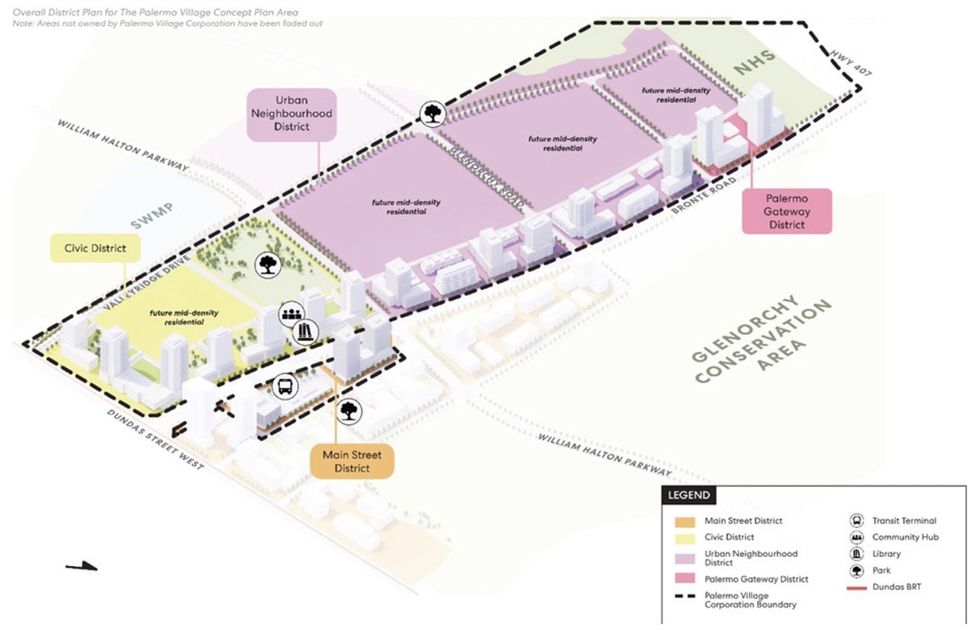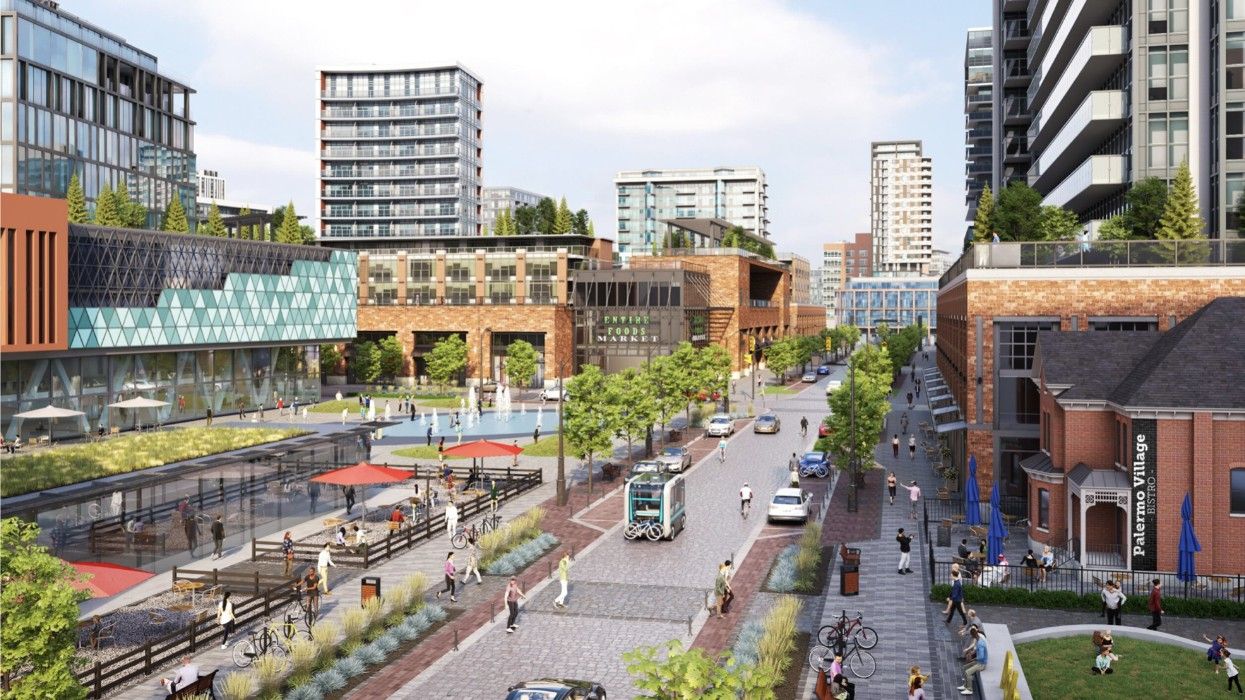Developers eyeing a swath of agricultural land just outside Toronto for sprawling mixed-use, master-planned community have had a major roadblock put up by the local town council.
A development application for a 47.73 hectare site, which stretches along Bronte Road from Dundas Street West to Highway 407, was submitted to the Town of Oakville in October of last year, proposing a range of residential, institutional, commercial, and public spaces.
Dubbed Palermo Village, the community was imagined by a consortium of companies, including ARGO Development Corporation and NAK Design Strategies, under the name Palermo Village Corporation.
The vast residential component includes three mixed-use condo blocks, four high-density residential condo blocks, four medium-density residential condo blocks, and 28 single-detached dwellings. Heights and densities would be greatest along the major thoroughfares of Dundas West and Bronte Road, with a lower gradation the further you move into the community.
While no specific unit count has been finalized, preliminary estimates from developers expect Palermo Village to create 6,890 new homes, some of which will be affordable, and have an estimated population of 12,257. As the developers noted, the number of anticipated new homes equates to 20% of Oakville’s 10-year provincial housing target.

Billed as a complete community, Palermo Village would also include a new community centre, library, and daycare, as well as retail spaces, a 2.25-hectare park, and a transit hub.
The vision for the site sees Palermo Village parcelled out into a series of distinct districts.The Main Street District would serve as the "heart of the community." It would include Old Bronte Road, the primary retail strip in the development, as well as high-rise residential towers, office spaces, the transit hub, and an urban square.
The Civic District would be anchored by the aforementioned 2.25-hectare park, which would be adjacent to the library and community centre. The built form would be varied, with high-rise towers fronting on Dundas West and Bronte Road, and lower-rise apartments and townhouses situated in the interior.
As the name suggests, the Urban Neighbourhood District would offer mid-density housing, including townhouses and single-detached homes, along with some higher-density residential on Bronte.
Finally, the Palermo Gateway District would serve the future 407 Transitway Station to the north of the community. It would consist of high-rise residential buildings and commercial and retail uses, and potentially an age-in-place facility.
Each district would be connected through a network of trails, which lead to a natural heritage system at the northern tip of the community.
While no existing heritage buildings are located within Palermo Village, its surrounding namesake community has “deep roots” in Oakville’s history dating back to 1806. As such, developers plan to pay homage to the area’s history through either commemorative plaques, street names, or building materials.

However, the project appears to have hit a snag before shovels are even in the ground, as Oakville Town Councillors have voted to reject the development proposal and a requested zoning by-law amendment.
In a report to Council, Senior Planner Robert Thun noted that the site had been the subject of "detailed, comprehensive land use studies," the most recent of which, conducted in 2023, resulted in new planning policies for the lands that the proposal does not conform with.
Palermo Village Corporation appealed the new Official Plan Amendments, as well as the previous policy framework, to the Ontario Land Tribunal (OLT), which has resulted in a “lack of land use policy” for the site. This, in turn, has led to a "fundamental issue" in processing the applications, as they can only be approved if they conform with Official Plan policies.
Thun’s report found that the applications "deviate from the adopted policies in several signifiant ways" including through the addition of low and medium-density residential buildings, the removal of office-employment and retail uses, increasing building height permissions, and the alteration of the existing natural heritage system.
The report recommended refusing the application, a request Oakville Mayor Rob Burton said was being made for "very good reasons."
"It is anticipated that the applicant will appeal this decision," Thun said, adding that the appeal would likely be consolidated with others at the OLT.
ARGO Development Corporation did not respond to request for comment by the time of publication.





















